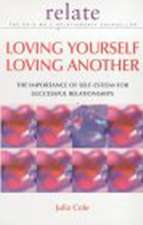The Self in Process: Toward A Post-Rationalist Cognitive Therapy
Autor Vittorio F. Guidanoen Limba Engleză Hardback – 31 mar 1991
In this profound work, Vittorio Guidano expands upon his earlier seminal contributions on the application of cognitive and developmental principles to individuals struggling with various forms of psycho-pathology. Here, he fully develops the idea that individuals' experience, both positive and negative, are powerfully influenced by their personal psychological organizations. Focusing primarily on the eating disorders, the phobias (with agoraphobia as the prototype) obsessive-compulsive patterns, and depression, Guidano illustrates how early developmental experiences and ongoing psychological processes may collude to perpetuate dysfunctional patterns and personal distress.
The central and perhaps most exciting thesis in this new expression of Guidano's thinking is that the deep structure or core organizing processes that constrain human psychological experience may be at the heart of successful intervention as well as the classical problems of resistance, relapse, and refractory behaviors. Guidano's contention is at once simple and powerful: those psychological processes involved in the development and maintenance of personal identity, or self that should be the primary foci of research and intervention in psycho-logical disorders.
The meaning of Guidano's perspective for clinical practice is perhaps best expressed in the author's own words:
Knowing the basic elements of the personal cognitive organization that underlie the pattern of disturbed behavior and emotions, the therapist can behave, from the beginning, in such a way as to build a relationship as effective as possible for that particular client. In other words, the therapist should be able to establish a relationship that respects the client's personal identity and systemic coherence and that, at the same time, does not confirm the basic pathogenic assumptions. For example, in working with agoraphobics, the therapist has to respect their self-images centered on the need to be in control. He/she can do this by avoiding any direct attack on their controlling attitudes and by leaving them a wide margin of control in the relationship. At the same time the therapist should avoid confirming their assumptions about the somatic origin of their emotional disturbances or about their inborn fragility. In short, the therapist who can anticipate the models of self and reality tacitly entertained by the client is surely better able to help the development of a cooperative and secure therapeutic relationship than the therapist who cannot make such anticipations.
This timely and provocative volume offers exciting new ideas about how to conceptualize and facilitate change in the self system. With the rare combination of his Renaissance intellect and integrative practical expertise, Guidano has been able to draw together many disparate themes from object relations theory, ego psychology, attachment theory, constructivist models of human cognition, and lifespan developmental psychology. It is must reading for the practicing professional, the helping apprentice, and anyone interested in glimpsing the cutting edge at the growing interface between cognitive and clinical science.
The central and perhaps most exciting thesis in this new expression of Guidano's thinking is that the deep structure or core organizing processes that constrain human psychological experience may be at the heart of successful intervention as well as the classical problems of resistance, relapse, and refractory behaviors. Guidano's contention is at once simple and powerful: those psychological processes involved in the development and maintenance of personal identity, or self that should be the primary foci of research and intervention in psycho-logical disorders.
The meaning of Guidano's perspective for clinical practice is perhaps best expressed in the author's own words:
Knowing the basic elements of the personal cognitive organization that underlie the pattern of disturbed behavior and emotions, the therapist can behave, from the beginning, in such a way as to build a relationship as effective as possible for that particular client. In other words, the therapist should be able to establish a relationship that respects the client's personal identity and systemic coherence and that, at the same time, does not confirm the basic pathogenic assumptions. For example, in working with agoraphobics, the therapist has to respect their self-images centered on the need to be in control. He/she can do this by avoiding any direct attack on their controlling attitudes and by leaving them a wide margin of control in the relationship. At the same time the therapist should avoid confirming their assumptions about the somatic origin of their emotional disturbances or about their inborn fragility. In short, the therapist who can anticipate the models of self and reality tacitly entertained by the client is surely better able to help the development of a cooperative and secure therapeutic relationship than the therapist who cannot make such anticipations.
This timely and provocative volume offers exciting new ideas about how to conceptualize and facilitate change in the self system. With the rare combination of his Renaissance intellect and integrative practical expertise, Guidano has been able to draw together many disparate themes from object relations theory, ego psychology, attachment theory, constructivist models of human cognition, and lifespan developmental psychology. It is must reading for the practicing professional, the helping apprentice, and anyone interested in glimpsing the cutting edge at the growing interface between cognitive and clinical science.
Preț: 351.77 lei
Preț vechi: 370.28 lei
-5% Nou
Puncte Express: 528
Preț estimativ în valută:
67.34€ • 70.27$ • 56.45£
67.34€ • 70.27$ • 56.45£
Carte tipărită la comandă
Livrare economică 12-26 martie
Preluare comenzi: 021 569.72.76
Specificații
ISBN-13: 9780898624472
ISBN-10: 0898624479
Pagini: 237
Dimensiuni: 152 x 229 x 22 mm
Greutate: 0.51 kg
Ediția:New.
Editura: Guilford Publications
Colecția Guilford Press
ISBN-10: 0898624479
Pagini: 237
Dimensiuni: 152 x 229 x 22 mm
Greutate: 0.51 kg
Ediția:New.
Editura: Guilford Publications
Colecția Guilford Press
Public țintă
Postgraduate, Professional, Professional Practice & Development, and UndergraduateCuprins
I. THEORETICAL PREMISES.
1. Selfhood Processes: An Ontological Approach.
2. The Differentiation of Self-Boundaries.
3. The Self-Organization of Personal Meaning Dimensions.
4. Self-Boundaries and Lifespan Development.
II. PSYCHOTHERAPEUTIC PRINCIPLES.
5. A Post-Rationalist Framework for Cognitive Therapy.
6. Preparing the Clinical and Interpersonal Context.
7. Construing the Therapeutic Setting.
8. Undertaking the Developmental Analysis.
9. Concluding Remarks.
1. Selfhood Processes: An Ontological Approach.
2. The Differentiation of Self-Boundaries.
3. The Self-Organization of Personal Meaning Dimensions.
4. Self-Boundaries and Lifespan Development.
II. PSYCHOTHERAPEUTIC PRINCIPLES.
5. A Post-Rationalist Framework for Cognitive Therapy.
6. Preparing the Clinical and Interpersonal Context.
7. Construing the Therapeutic Setting.
8. Undertaking the Developmental Analysis.
9. Concluding Remarks.
Notă biografică
Vittorio F. Guidano, MD, founded the Rome Center for Cognitive Therapy, where he serves as Staff Psychiatrist, and is a founding member of the Italian Association for Cognitive Behavioral Therapies. From 1976 to 1986 he was Assistant Professor of Psychotherapy and Psychopathology at the School of Medicine of the University of Rome.
Recenzii
This is a creative and thought-provoking work, rich in theoretical ideas and clinical insights, which are well illustrated with extensive case material. At the heart of Guidano's approach lies a passionate and rigorous commitment to a constructivist epistemology and to a view of human beings as self-organizing, self-determining agents, capable of ongoing growth and differentiation. A stimulating and original contribution. --Jeremy D. Safran, Ph.D.
-Guidano provides psychologists, and therapists in particular, a fresh way to conceptualize the role of affect in human experience.
--Contemporary Psychology, 2/3/1991Descriere
In this powerful work, Dr. Guidano critiques the separation of observer and observed, shows how the very meaning of "self" is thus redefined, and delineates the clinical ramifications of the newly conceived self for a "post-rationalist" cognitive











